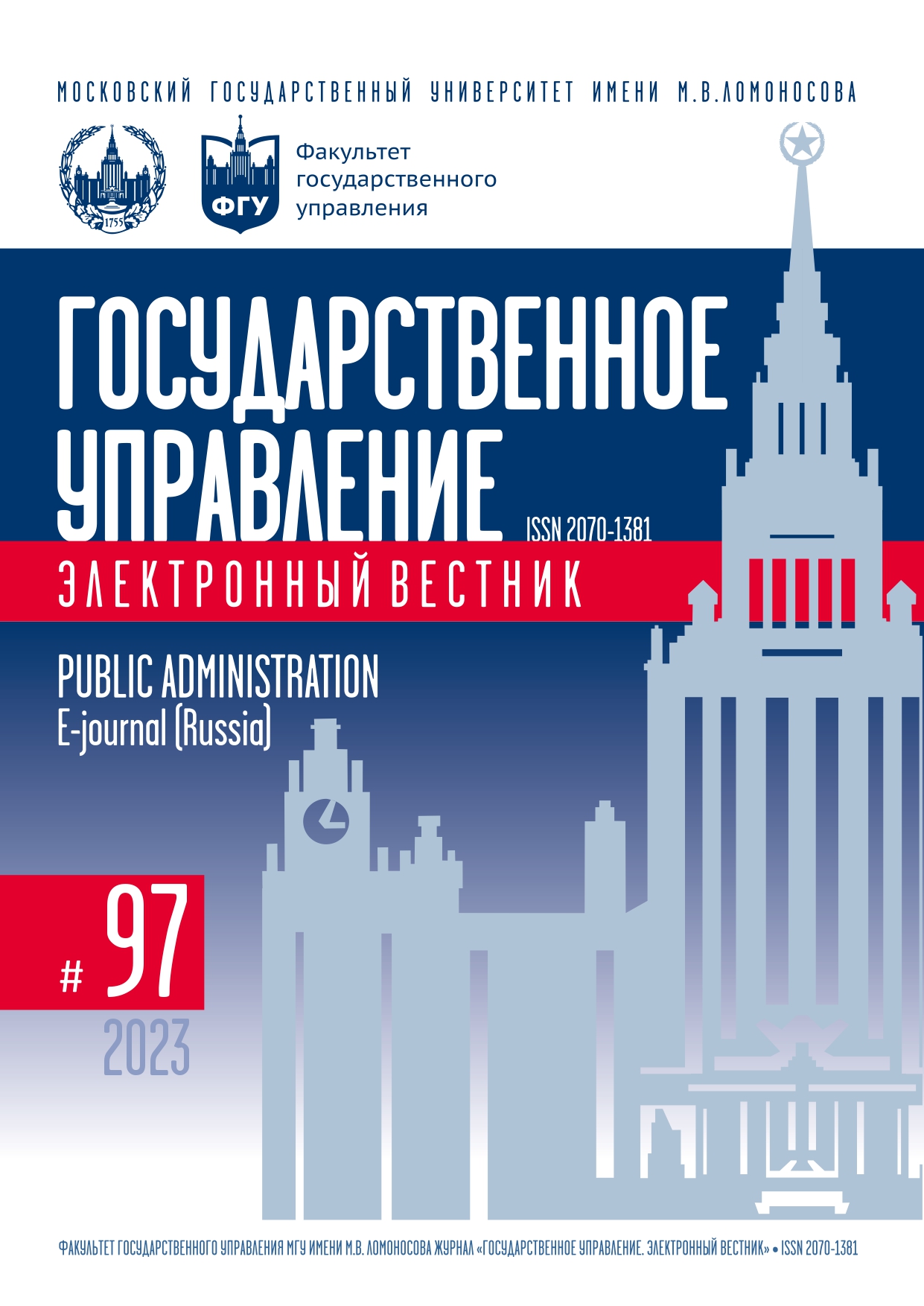«Long COVID» in World Public Opinion
Keywords:
World public opinion, COVID-19 pandemic, long COVID, vaccine nationalism, moral failure, cultural shifts, solidarity, equitable global access, compromiseAbstract
Since the beginning of the pandemic, COVID-19 has been perceived as a moral challenge to humanity and has become a central topic on the global agenda. The fight against the COVID-19 pandemic unfolding before our eyes has been repeatedly assessed not only as the largest market failure that the modern world has seen, but also as a catastrophic moral failure that threatens to turn into a political catastrophe. The article analyzes the general trends in the evolution of world public opinion over the three years of the fight against the pandemic as a response to this challenge and substantiates the conclusion about a slow but steady global value, cultural shift towards a solidaristic, humanistic vector, which is gradually being converted into real strategies for humanity’s exit from the COVID crisis. The metaphor “long COVID” is used in the article to emphasize the long-term and fundamental nature of the changes taking place under the influence of the pandemic, matured before the pandemic, but sharply accelerated and deepened with its onset and maintaining its inertia in the post-epidemic era. It is concluded that the inertia of these processes will only increase, because in addition to the fight against COVID, another battle is unfolding in the world — for the future, for the choice of a social vector for further technological and geopolitical development. And this explains the scale of the social upheaval associated with the pandemic, which is clearly not commensurate with its own nature and character. The pressure of world public opinion makes it possible to promote humanistic, solidaristic values, strengthen the democratic vector of world social development, forms a common moral environment as a powerful motivator of social change.
References
Милехин А.В. Глобальные опросы Gallup International: как мировые медиа интерпретируют результаты исследований // Социологические исследования. 2016. № 11. С. 54–60.
Chan Y., Datt G., Islam A., Rai B., Wang L.C. Public Support in the United States for Global Equity in Vaccine Pricing // Scientific Reports. 2022. Vol. 12. DOI: 10.1038/s41598-022-13172-7
Clarke P.M., Roope L.S. J., Loewen P.J., Bonnefon J-F., Melegaro A., Friedman J., Violato M., Barnett A., Duch R. Public Opinion on Global Rollout of COVID-19 Vaccines // Nature Medicine. 2021. Vol. 27. P. 935–936. DOI: 10.1038/s41591-021-01322-9
Collins F., Adam S., Colvis Ch., Desrosiers E. et al. The NIH-led Research Response to COVID-19. Investment, Collaboration, and Coordination Have Been Key // Science. 2023. Vol. 379. Is. 6631. P. 441–444. DOI: 10.1126/science.adf5167
Emanuel E.J., Persad G., Kern A., Buchanan A. et al. An Ethical Framework for Global Vaccine Allocation // Science. 2020. Vol. 369(6509). P. 1309–1312. DOI: 10.1126/science.abe2803
Krastev I. Is It Tomorrow Yet? Paradoxes of Pandemic. London: Penguin, 2020.
Kumar S., Quinn S.C., Kim K.H., Hilyard K.M. US Public Support for Vaccine Donation to Poorer Countries in the 2009 H1N1 Pandemic // PlosOne. 2012. DOI: 10.1371/journal.pone.0033025
Larson H. Stuck: How Vaccine Rumors Start — and Why They Don’t Go Away. New York: Oxford University Press, 2020.
Luyten J., Kessels R., Tubeuf S. Who Should Get It First? Public Preferences for Distributing a COVID-19 Vaccine // Covid Economics. 2020. Is. 57. URL: https://dial.uclouvain.be/pr/boreal/object/boreal%3A238015/datastream/PDF_01/view
Mukaigawara M., Hassan I., Fernandes G., King L., Patel J., Sridhar D. An Equitable Roadmap for Ending the COVID-19 Pandemic // Nature Medicine. 2022. Vol. 28. P. 893–896. DOI: 10.1038/s41591-022-01787-2
Riccioni L., Bertolini G., Giannini A., Vergano M., Gristina G., Livigni S., Mistraletti G., Petrini F. Raccomandazioni di etica clinica per l’ammissione a trattamenti intensivi e per la loro sospensione, in condizioni eccezionali di squilibrio tra necessità e risorse disponibili // Recenti Progressi im Medicina. 2020. Vol. 111. Is. 4. P. 207–211. DOI: 10.1701/3347.33183
Sachs J.D., Karim S.A.S., Aknin L., Allen J. et al. The Lancet Commission on Lessons for the Future from the COVID-19 Pandemic // Lancet. 2022. Vol. 400. Is 10359. DOI: 10.1016/S0140-6736(22)01585-9
The Pandemic Divide. How COVID Increased Inequality in America /ed.by G.L. Wright, L. Hubbard, W.A. Darity. Durham, London: Duke University Press, 2022.

